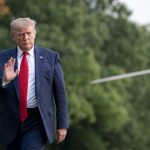During a recent Senate Judiciary hearing, the acting director of the United States Secret Service faced some prickly questions regarding a failed assassination attempt against former President Donald Trump. It appears that the Secret Service, often lauded as the elite protection detail for America’s leaders, stumbled so badly that the acting director, Ronald Rowe Jr., openly admitted to a significant security lapse. Talk about a rough day at the office.
The Senate hearing was designed to dissect the glaring shortcomings that allowed a shooter to fumble an attempt on Trump’s life, with a shot that thankfully missed the former president’s head by mere inches. Rowe’s testimony could be summed up as an exercise in damage control, as he struggled to explain why the roof of the venue was patently unguarded. Who needs security, right? Apparently, the Secret Service doesn’t think that a former president speaking at a rally requires any special precaution—unless you count waiting until it’s too late as a precaution.
Acting Secret Service Director: I "could not, and I will not and I cannot understand" why the roof where the shooter carried out his attack on former President Trump was not secured. pic.twitter.com/gjK1WqrunJ
— Townhall.com (@townhallcom) July 30, 2024
As if that wasn’t cringe-worthy enough, Rowe admitted his embarrassment over the “flaws” in their security protocols. It’s one thing to be ashamed, but a whole different ballgame to acknowledge that the agency once revered for safeguarding the nation’s leaders dropped the ball. No defenses given for why that roof wasn’t crawling with agents, and instead he offered the brilliant insight that they simply failed to imagine malicious intent. Who could have possibly predicted that someone might try to harm the man who has been a polarizing figure for years?
Senator Amy Klobuchar, clearly agitated, dug deeper, demanding to know where things went south. Rowe’s explanation centered on a failure of imagination, as if simply envisioning the presence of bad actors would magically shield their protectees. In a world that has seen attempted attacks on figures like U.S. Presidents before, one would think that imagination should have been the least of their worries—not to mention that rowdy fans occasionally take things too far. Given the stakes, one would expect the Secret Service to have more foresight than a fortune teller at a county fair.
Further adding to the comedy of errors, Rowe revealed that local law enforcement had information on the shooter long before the Secret Service even caught wind of the “suspicious person” roaming about. Local authorities knew about this character 90 minutes prior to the near-miss, while the Secret Service scrambled to put their puzzle together half an hour too late. Law enforcement recognized a potential threat well before the so-called “best of the best” could mobilize. Isn’t that just a stellar sign of leadership?
Even with all the questions swirling, Rowe struggled to articulate an adequate plan of action, instead agreeing with Senator John Cornyn that the Secret Service should have been the point agency on this matter. After all, if the Secret Service isn’t in charge when an assassin is on the loose, then who would be? Maybe it’s time for a major reevaluation of priorities and protocols at an agency that clearly needs a serious wake-up call. If this incident doesn’t scream for reform, nothing ever will.




